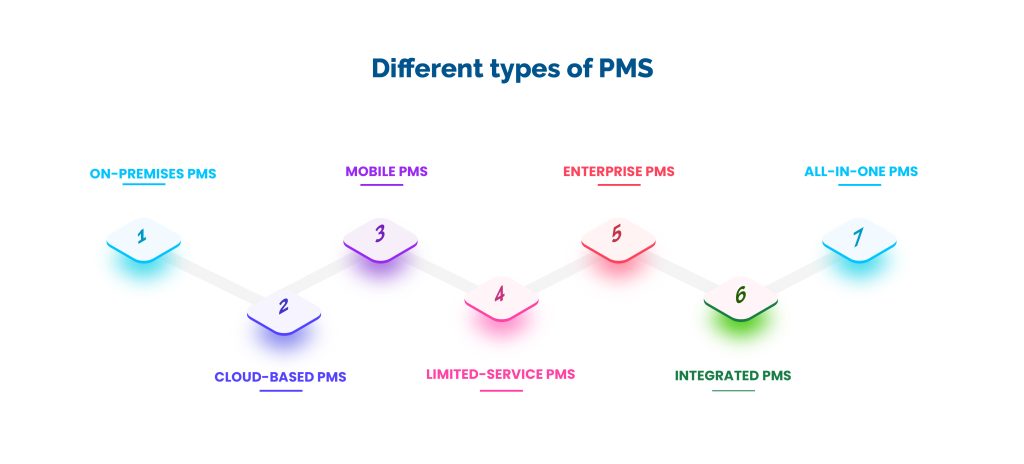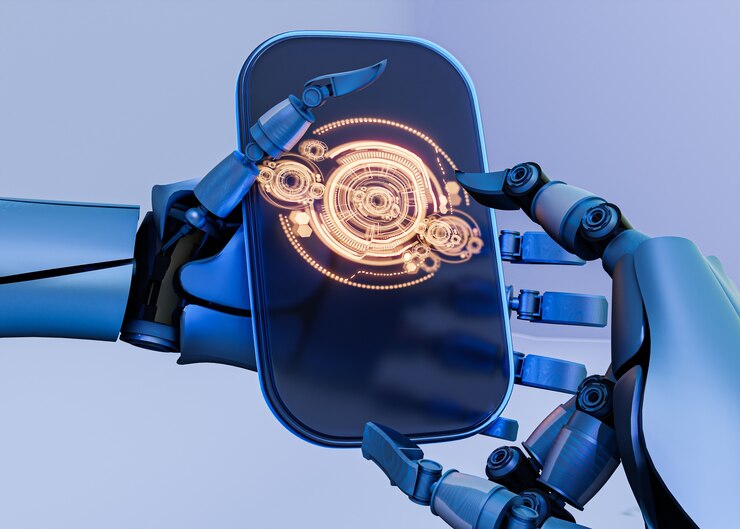BLOG
From Chaos to Control: How Hotel Property Management Systems Brings Order to Your Business
From Chaos to Control: How Hotel Property Management Systems Brings Order to Your Business
Property Management Systems perform a wide range of activities to facilitate efficient management of hotel operations and enhance guest experiences. Here are some essential tasks that the Property Management Systems typically handles:
Reservations and Bookings:
Property Management Systems allow hotels to manage reservations and bookings from multiple sources, including direct bookings, online travel agencies (OTAs), and other distribution channels. It provides real-time visibility into room availability, rates, and restrictions, helping front desk staff make accurate and timely bookings.
Guest Check-In and Check-Out:
The Property Management Systems automate the check-in and check-out process, enabling quick and seamless guest arrivals and departures. It captures guest information, assigns rooms, manages key card issuance, and updates room status in real time.
Room Inventory Management:
The PMS keeps track of room inventory, including room types, availability, and rates. It helps manage room allocations, upgrades, and changes. The system provides an overview of room occupancy, allowing hoteliers to optimize room allocation and maximize revenue.

Guest Profiles and Preferences:
A PMS stores guest profiles and preferences, including contact details, stay history, loyalty program information, and specific requests. This information allows hotels to personalize guest experiences, provide tailored services, and anticipate guest needs.
Billing and Invoicing:
Property Management Systems handle billing and invoicing processes, automating the calculation of charges for room rates, additional services, and amenities. It generates guest folios, applies taxes, and integrates with payment gateways for seamless payment processing. The system helps streamline financial transactions and simplifies the billing process for guests.
Housekeeping and Maintenance:
Property Management Systems assist in managing housekeeping and maintenance operations. It tracks room status, facilitates housekeeping assignments, and ensures prompt response to maintenance requests. Housekeeping staff can update room status in the system, allowing for efficient coordination and room turnover.
Reporting and Analytics:
A PMS provides comprehensive reporting and analytics capabilities, offering insights into hotel performance, occupancy rates, revenue, and guest preferences. It generates various reports, allowing hoteliers to analyse trends, make data-driven decisions, and identify opportunities for improvement.
Integration with External Systems:
PMS systems often integrate with other hotel systems, such as point-of-sale (POS) systems, central reservation systems (CRS), revenue management systems (RMS), and online booking engines. This integration ensures seamless data flow and synchronization across different systems, reducing manual effort and improving operational efficiency.
What are the benefits of PMS?
Implementing a Property Management System (PMS) in a hotel brings several benefits that enhance operational efficiency, guest service, and overall hotel management. Here are some key benefits of using a PMS:
Streamlined Operations
A PMS automates and centralizes various hotel operations, including reservations, check-in/out, room assignments, billing, and reporting. This streamlines processes, reduces manual effort, and eliminates paperwork, leading to increased operational efficiency and smoother workflows.
Enhanced Guest Service
With a PMS, hotel staff can access guest information, preferences, and stay history, allowing them to provide personalized service and tailored experiences. The system enables efficient check-in/out, quick response to guest requests, and accurate billing, resulting in improved guest satisfaction and loyalty.
Real-Time Room Availability and Rates
A PMS provides real-time visibility into room availability, rates, and restrictions. This allows front desk staff to make accurate and timely bookings, avoid overbooking situations, and optimize room allocation. Guests can receive up-to-date information on room availability and make informed decisions during the booking process.
Efficient Billing and Invoicing
The billing and invoicing features of a PMS automate the calculation of charges, taxes, and fees. This reduces errors, simplifies the billing process, and improves accuracy in financial transactions. Guests receive accurate and transparent bills, leading to smoother check-outs and a positive guest experience.
Comprehensive Reporting and Analytics
Property Management Systems generate a wide range of reports and provide analytical insights into hotel performance, occupancy rates, revenue, and guest behaviour. These reports help hoteliers make data-driven decisions, monitor key metrics, identify trends, and optimize revenue management strategies.
Integration with External Systems
Property Management Systems platforms often integrate with other hotel systems such as point-of-sale (POS), central reservation systems (CRS), and revenue management systems (RMS). This integration ensures seamless data flow and synchronization, reducing manual data entry and improving accuracy across multiple systems.
Time and Cost Savings
By automating manual tasks, reducing paperwork, and streamlining processes, a PMS saves time and reduces operational costs. Staff can focus on guest service and revenue-generating activities rather than administrative tasks. The system also helps in optimizing room occupancy and rates, maximizing revenue potential.
Improved Communication and Collaboration
A PMS enhances communication and collaboration among hotel departments and staff members. Information is readily accessible, and updates are reflected in real-time, allowing different teams to work cohesively and provide a seamless guest experience.
Scalability and Growth
A robust PMS can accommodate the growth and expansion of a hotel. It can handle increased room inventory, support multiple properties, and integrate with additional systems as the business grows. This scalability allows hotels to adapt to changing needs and seize new opportunities.
What are the different types of PMS?
There are different types of Property Management Systems (PMS) available in the market, each catering to specific types of properties and their unique requirements. Here are some common types of PMS:
On-Premises PMS
On-Premises PMS refers to software that is installed and hosted locally on the property’s servers or computers. It requires dedicated hardware and IT infrastructure to operate. On-Premises PMS systems offer a high level of control and customization but often require significant upfront investment and ongoing maintenance.
Cloud-Based PMS
Cloud-Based PMS, also known as Software as a Service (SaaS) PMS, is hosted, and accessed over the internet. The PMS provider manages the infrastructure, updates, and data security. Cloud-based PMS solutions offer flexibility, scalability, and remote accessibility. They eliminate the need for on-site hardware and provide automatic software updates.

Mobile PMS
Mobile Property Management systems are designed specifically for mobile, allowing hotel staff to access critical functions on the go, including managing reservations, checking guests in/out, assigning rooms, and handling guest requests. It enhances mobility and efficiency for staff members.
Limited-Service PMS
Limited-Service PMS caters to smaller properties, such as budget hotels, motels, and bed and breakfast establishments. These PMS solutions offer essential features focused on room reservations, check-in/out processes, and basic guest management. They are typically simpler and more cost-effective compared to full-featured PMS systems.
Enterprise PMS
Enterprise Property Management Systems are designed for hotel chains and multi-property management. They provide centralized control and management of multiple properties from a single platform. Enterprise PMS allows for standardized operations, seamless data sharing, and consolidated reporting across all properties within the chain.
Integrated PMS
Integrated PMS solutions are designed to integrate and communicate with other hotel systems, such as Point of Sale (POS), Central Reservation System (CRS), Revenue Management System (RMS), and Online Travel Agency (OTA) channels. It ensures smooth data flow and eliminates the need for manual data entry across different systems.
All-in-One PMS: All-in-One Property Management Systems combine property management features with additional functionalities, such as channel management, an online booking engine, guest communication, housekeeping management, and analytics. These comprehensive PMS solutions aim to provide a complete suite of tools to manage all aspects of property operations within a single platform.
What are the Main modules of property management systems?
Property Management Systems typically consist of several modules that cover various aspects of hotel or property operations. While the specific modules may vary depending on the PMS provider and the property’s requirements, here are some main modules commonly found in Property Management Systems:
Reservations:
The reservations module allows hotel staff to manage room availability, create and modify reservations, handle guest inquiries, and track booking details. It includes features for managing individual or group bookings, room types, rates, and restrictions.
Front Desk:
The front desk module handles guest check-in and check-out processes. It provides tools for managing guest registration, assigning rooms, managing room keys, handling guest requests and preferences, and processing payments.
Housekeeping:
The housekeeping module assists in managing housekeeping operations and room status. It enables staff to track the status of rooms, schedule and assign cleaning tasks, manage room maintenance, and ensure timely turnaround of rooms for incoming guests.
Point of Sale (POS):
The POS module is used for managing onsite transactions and sales. It includes features for processing payments, managing restaurant and bar orders, tracking inventory, generating bills, and providing detailed financial reporting.
Accounting and Financials:
The accounting module handles financial operations, including accounts receivable, accounts payable, invoicing, general ledger, and financial reporting. It integrates with other modules to capture relevant financial data and streamline financial management processes.
Reporting and Analytics:
The reporting and analytics module provides comprehensive reporting and data analysis capabilities. It generates various reports related to occupancy, revenue, guest profiles, reservation patterns, and other key performance indicators. These reports help in making informed decisions and monitoring property performance.
Guest Relationship Management (CRM):
The CRM module manages guest information and interactions. It stores guest profiles, preferences, stay history, and communication records. It enables personalized guest service, targeted marketing campaigns, and loyalty program management.
Online Booking and Distribution:
The online booking and distribution module facilitates online reservations and connectivity with distribution channels such as the property’s website, online travel agencies (OTAs), global distribution systems (GDS), and channel managers. It helps manage availability, rates, and inventory across various distribution channels.
Maintenance Management:
The maintenance management module handles the tracking and scheduling of property maintenance tasks and repairs. It ensures that maintenance requests and work orders are efficiently managed to keep the property in optimal condition.
Guest Communication:
The guest communication module enables communication with guests before, during, and after their stay. It includes features for sending pre-arrival messages, automated post-stay surveys, and handling guest inquiries and requests.
Loyalty Program Management:
The loyalty program module manages guest loyalty programs, rewards, and membership benefits. It tracks guest participation, points accumulation, and redemption. It helps enhance guest retention and loyalty.
How to choose a PMS
Choosing the right Property Management System for your hotel or property is a crucial decision that can significantly impact your operations and guest experience. Here are some key factors to consider when selecting a PMS:
Property Size and Type:
Assess the size and type of your property. Different PMS solutions cater to various property sizes, from small independent hotels to large resorts or chains. Determine if the Property Management System is suitable for your property’s scale and specific needs.
Features and Functionality:
Identify the key features and functionalities you require in your PMS. Consider modules such as reservations, front desk, housekeeping, reporting, online bookings, POS integration, and more. Make a list of must-have features and compare them across different Property Management Systems options.
Integration Capabilities:
Evaluate the PMS’s ability to integrate with other systems you use, such as POS, accounting, channel managers, online travel agencies (OTAs), or revenue management systems (RMS). Seamless integration eliminates manual data entry and ensures efficient operations.
Scalability and Flexibility:
Consider the scalability and flexibility of the PMS. Will it accommodate your future growth plans? Can it handle increased demand during peak seasons? A PMS that can scale with your business and adapt to changing needs is essential for long-term success.
User-Friendliness:
Evaluate the user interface and ease of use of the PMS. It should have an intuitive design and user-friendly navigation. Request demos or trial periods to assess the system’s usability and ensure that your staff can quickly learn and operate the PMS.
Training and Support:
Assess the training and support offered by the PMS provider. Adequate training ensures that your staff can effectively use the system. Check the availability and responsiveness of customer support, including technical assistance and troubleshooting.

Security and Data Protection:
Data security is crucial in the hospitality industry. Ensure that the PMS provider follows industry standards and implements robust security measures to protect guest data, including encryption, secure payment processing, and compliance with data protection regulations.
Cost and Return on Investment (ROI):
Consider the total cost of ownership, including upfront costs, ongoing fees, and any additional charges. Evaluate the potential ROI based on the system’s ability to streamline operations, enhance guest experiences, and increase revenue. Compare pricing models and assess the value provided by the PMS.
Reputation and Reviews:
Research the reputation and customer reviews of the PMS provider. Look for testimonials or case studies from properties like yours. Seek recommendations from industry peers or consult with trusted advisors to gather insights about the PMS options you are considering.
Future Roadmap and Innovation:
Assess the PMS provider’s commitment to innovation and ongoing development. A forward-thinking provider will continuously update the system with new features and enhancements to stay ahead of industry trends and meet evolving needs.
How to deploy a cloud-based hotel PMS
Deploying a cloud-based hotel Property Management System involves several key steps to ensure a smooth transition to the new system. Here’s a general guide on how to deploy a cloud-based hotel PMS:
Assess Your Needs:
Evaluate your hotel’s specific requirements and determine the features and functionalities you need in a cloud-based PMS. Consider factors such as property size, number of rooms, types of guests, integration needs, and budget.
Research and Select a PMS Provider:
Conduct thorough research to identify reputable cloud-based PMS providers that align with your needs. Evaluate their offerings, features, pricing, customer support, and reputation. Request demos or trial periods to experience the system firsthand.
Data Migration and Integration:
Assess your existing data and determine how it will be migrated to the new PMS. Work with the PMS provider to develop a data migration plan and ensure a seamless transfer of guest profiles, reservations, rates, and other relevant data. Discuss integration requirements with the provider for seamless connectivity with other systems, such as POS or channel managers.
Configuration and Customization:
Work closely with the Property Management Systems provider to configure the system according to your hotel’s specific needs. Customize settings, room types, rates, restrictions, and other parameters to match your property’s operations. Ensure that the PMS is tailored to your workflows and preferences.
Training and Familiarization:
Arrange training sessions for your staff to familiarize them with the cloud-based PMS. Ensure that they understand how to use the system efficiently, including modules like reservations, front desk, housekeeping, reporting, and any other relevant features. Offer ongoing support and resources to address any questions or concerns.
Testing and Quality Assurance:
Conduct thorough testing of the cloud-based PMS before going live. Verify that all features and functionalities are working as intended, and data is accurately migrated. Identify and address any issues or discrepancies to ensure a smooth deployment.
Implementation Plan and Rollout:
Develop an implementation plan that outlines the timeline, tasks, and responsibilities for deploying the cloud-based PMS. Communicate the plan to all relevant stakeholders, including staff members, IT personnel, and management. Execute the rollout in stages or phases, if necessary, to minimize disruption.
Staff Support and Monitoring:
Provide ongoing support to your staff during the transition and initial deployment phase. Address any concerns or challenges promptly and offer training refreshers if needed. Monitor the system’s performance, user feedback, and key metrics to identify areas for improvement.
Post-Deployment Evaluation:
Evaluate the effectiveness of the cloud-based PMS after deployment. Gather feedback from staff and guests to identify any areas of improvement or additional training needs. Continuously monitor and optimize the system to maximize its benefits for your hotel’s operations.
What’s the future of the hotel PMS?
The future of hotel Property Management Systems is expected to bring significant advancements and transformative changes to the industry. Here are some key trends that can shape the future of hotel PMS:
Cloud-Based Solutions:
Cloud-based PMS will continue to dominate the industry, offering increased flexibility, scalability, and cost-effectiveness. Hoteliers will rely less on on-premises systems and shift towards cloud-based solutions, enabling remote access, seamless updates, and enhanced data security.
Mobile Accessibility:
With the proliferation of smartphones and mobile devices, hotel PMS will prioritize mobile accessibility. Staff members will have access to PMS functionalities via mobile apps, allowing them to manage operations, check reservations, communicate with guests, and perform other tasks on the go.
Integration with Emerging Technologies:
Hotel PMS will integrate with emerging technologies such as artificial intelligence (AI), machine learning (ML), and Internet of Things (IoT) devices. AI and ML algorithms can analyse guest data to provide personalized experiences and optimize operations. IoT devices can integrate with PMS to automate tasks, control room settings, and enhance guest interactions.
Enhanced Guest Experience:
Hotel PMS will focus on delivering exceptional guest experiences. PMS will gather and analyse guest data, enabling hotels to provide personalized services, tailor recommendations, and anticipate guest needs. This may include pre-arrival customizations, mobile check-in, keyless entry, and personalized offers based on guest preferences.
Advanced Analytics and Business Intelligence:
Hotel PMS will offer more robust analytics and business intelligence capabilities. Advanced reporting and data visualization tools will provide in-depth insights into occupancy rates, revenue performance, guest satisfaction, and market trends. This data-driven approach will empower hoteliers to make informed decisions and implement effective strategies.
Seamless Integration with Third-Party Systems:
PMS will strengthen integrations with other systems, such as revenue management systems, customer relationship management (CRM) platforms, channel managers, and online travel agencies (OTAs). This seamless integration will streamline data flow, reduce manual work, and optimize distribution channels for better revenue management.
Personalized Marketing and Loyalty Programs:
Hotel PMS will support targeted marketing campaigns and loyalty programs. By leveraging guest data, PMS will enable hotels to create personalized marketing messages, promotions, and loyalty rewards. This tailored approach will foster guest loyalty, drive repeat bookings, and enhance guest satisfaction.
Automation and Artificial Intelligence:
Automation will play a significant role in hotel PMS, automating routine tasks and optimizing operational efficiency. AI-powered chatbots and virtual assistants will handle guest inquiries and provide instant responses, enhancing guest service while reducing staff workload. Automated revenue management algorithms will optimize pricing and inventory decisions.
Integration of Blockchain Technology:
Blockchain technology has the potential to revolutionize the hotel industry, and PMS can leverage its benefits. Blockchain can enhance data security, enable secure and transparent transactions, streamline guest identification and verification, and facilitate loyalty program management.
Sustainability and Green Initiatives:
Hotel PMS will support sustainability initiatives by incorporating features that monitor and optimize energy consumption, waste management, and resource usage. PMS can provide insights and reports on sustainability metrics, helping hotels make environmentally conscious decisions.
PMS Solutions for Small and Medium Hotels
Property Management System solutions for small hotels, hostels, inns, and bed and breakfasts (B&Bs) cater to the specific needs and budget constraints of these establishments. Here are some key considerations and features to look for when choosing a PMS for small-scale accommodations:
User-Friendly Interface:
PMS solutions for small hotels should have a user-friendly interface that is easy to navigate and understand, even for non-technical staff. Intuitive design and simplified workflows ensure smooth operations and minimize training requirements.
Reservation Management:
A reliable PMS should offer robust reservation management capabilities. It should allow for quick and easy reservation creation, modification, and cancellation. The system should also provide a centralized view of room availability, helping you efficiently manage your room inventory.
Online Booking Integration:
Integration with an online booking engine is essential for small accommodations to facilitate direct bookings from their website. The PMS should seamlessly connect with the booking engine, ensuring real-time availability and instant booking confirmation.
Front Desk Operations:
The PMS should support front desk operations, including check-in and check-out processes. It should allow efficient guest registration, room assignment, key management, and payment processing. Streamlining these tasks helps improve guest satisfaction and operational efficiency.
Guest Communication:
Look for a PMS that enables effective guest communication. It should have built-in email or messaging features to send pre-arrival instructions, follow-up messages, and post-stay feedback requests.
Financial Management:
PMS solutions for small accommodations should include basic financial management features. These may have invoicing, billing, and payment tracking functionalities. Integration with payment gateways simplifies the payment process and ensures accurate financial records.
Reporting and Analytics:
The PMS should offer reporting and analytics capabilities tailored to the needs of small accommodations. Essential reports may include occupancy rates, revenue summaries, guest demographics, and reservation statistics. These insights help you make informed business decisions.
Channel Management Integration:
Small hotels looking to expand their reach through online travel agencies (OTAs) and global distribution systems (GDS); integrating with a channel management system is crucial. This allows you to manage rates, availability, and reservations across multiple channels from a single platform.
Housekeeping and Maintenance:
Look for a PMS that supports housekeeping and maintenance management. It should allow you to track room status, schedule cleaning tasks, and manage maintenance requests. Streamlining these operations helps maintain a high standard of cleanliness and guest satisfaction.
Scalability and Affordability:
Consider a PMS that can accommodate future growth and is cost-effective for small establishments. The system should be scalable to handle increasing room inventory and adaptable to your changing needs. Subscription-based pricing models or pay-as-you-go options may be more suitable for small budgets.
Conclusion:
Hotel Property Management Systems have become indispensable tools for efficient hotel operations and exceptional guest experiences. The featured products offer a range of functionalities, from core front desk operations and reservation management to revenue optimization, guest services, and integrations with other hotel systems.
When selecting a PMS, it’s essential to consider factors such as the size of your property, specific operational requirements, integration capabilities, scalability, and vendor support. A well-implemented PMS with the right set of features can help hotels streamline operations, enhance guest satisfaction, and drive revenue growth in today’s competitive hospitality landscape.
Investing in a robust and feature-rich PMS is a strategic decision that positions hotels for success, ensuring smooth operations, and seamless guest experiences.
Related Topics
Trending Topics
Want to build Super app for your business?



